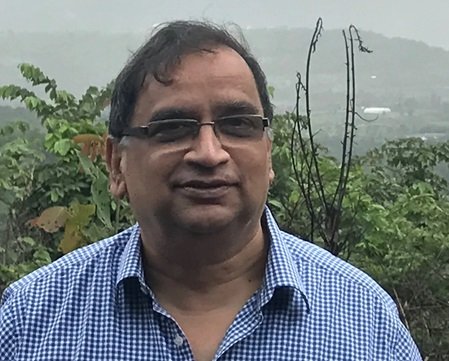Sunday, 22 February 2026

In an exclusive interview with AgroSpectrum, Sanjiv Phansalkar, Founder, Vikas Anvesh Foundation a research organisation supported by Tata Trust touches on the key points that can expand the Famer Producer Organisations’ network across the country.
What are the current needs of the FPOs?
Many FPOs lack the necessary funds to operate. Companies that sell agricultural inputs, especially seeds and pesticides, offer great profits and lenient trade terms, prompting everyone to become an input supplier. While this may work in the near term, it is far from a sustainable plan.If FPOs can find a way to boost the economic productivity of their members’ resources, they will not only help them but also ensure the organisation’s long-term sustainability. With the rapid expansion of road connectivity almost everywhere and the near universal access to digital public infrastructure, the inflated claims about abnormally high profits produced by merchants have mostly faded from the perspectives of inputs and outputs.
Working on aggregation alone while sticking with the same suppliers or customers can only lead to small price reductions on inputs or increases in members’ income from outputs. Consequently, the only way to make a genuine and long-term impact on the welfare of members is to boost resource production. This is what the members truly need. The challenge lies in the FPO’s ability to anticipate these needs, optimise its resource utilisation, and cultivate a diverse range of business relationships with its members that not only ease their transition but also enable the FPO to generate sufficient revenue to sustain its operations.
How Board engagement in FPOs can be improved to get it more aligned?
When considering the long-term viability of an institution, board involvement in FPO is likely to yield positive results. It is commonly acknowledged that the Board plays a crucial role in strengthening member loyalty and coherence, but unfortunately, FPO administrators sometimes assume that this responsibility belongs solely to the Board members. They have persisted through the years of trading goods and services in the neighbourhood markets because they are individual members of the farming community. It is necessary to take advantage of their social network, as well as their knowledge and insights.
The key is to approach them in a way that isn’t condescending, but rather as a partner in exploring and engaging with the marketplace and making business decisions. In addition to giving the Board and, by extension, the FPO members a greater stake in the company’s success, this will increase the managers’ access to market data. Standard Operating Procedures (SOPs) clarify the who, what, when, and how of an ongoing organisation’s business procedures. They provide some stability and aid the company as it climbs the learning curve to greater efficiency. A solid grasp of the business is necessary for process setup. This could be time-consuming for a newly formed FPO.
How can the entire financial system working in the FPO cycle can be refurbished to support its smooth functioning?
There has to be a fightback against the government’s strategy, which is to get FPOs to take huge fixed assets through Scheme of Fund for Regeneration of Traditional Industries (SFRTI) or similar programmes. But it has good reasons behind it. Working capital is essential for every commodity firm. This necessity is drastically increased for commodities with a seasonal production schedule. Therefore, operating capital must be prioritised while using the few resources available with the FPO. Second, depreciation, interest payments, fixed charges (for power connection), security expenditures, etc. all rise in tandem with fixed investments. The company is more vulnerable to higher operational leverage as a result of these increased fixed expenses. To remain viable, it is best to avoid increasing operational leverage, since most commodity markets are hazardous and margins are small.
The FPO should avoid investing in fixed assets and instead focus on doing processing and similar tasks on an operating lease or as-needed basis.
What are the ways forward for FPOs to achieve their set goals?
Until it has enough experience, a strong member base that can guarantee a steady volume of business, and the financial stability to invest in expanding its distribution network and brand, the FPO must withstand pressure and ambition to enter the small consumer pack market and completely forgo building its own brand for a number of years. First and foremost, the FPO needs to concentrate on being in the market every day. Just this will make it possible for other market participants to notice it and take it seriously. Being in the market just occasionally is a surefire way to be taken advantage of by other competitors.
The FPO must have some control over when members schedule production and harvest their produce if they want to be present at the market every day. It is best to carefully evaluate and interact with the market in a graded approach because these factors are interrelated and will be perceived to have financial ramifications for both the FPO and the members. It is a good idea to involve the Board in decisions related to this. Above, an effort has been made to identify several facets of the FPO’s operations and offer a particular strategy and set of actions that ought to be implemented right now.
By Nitin Konde